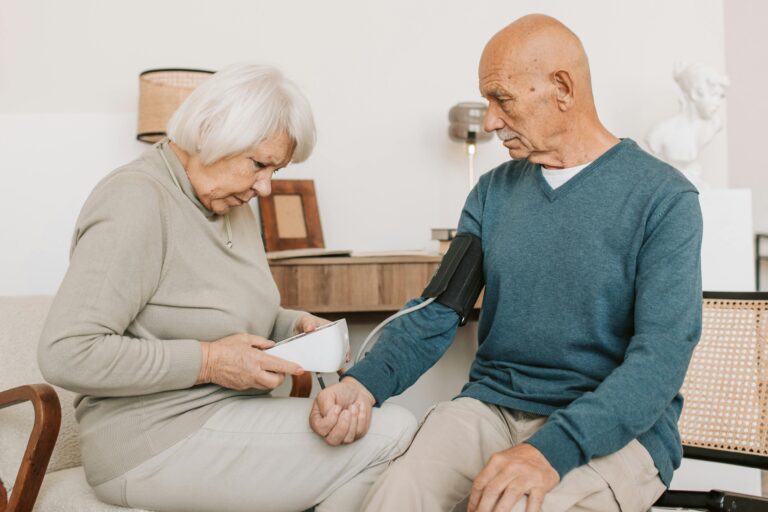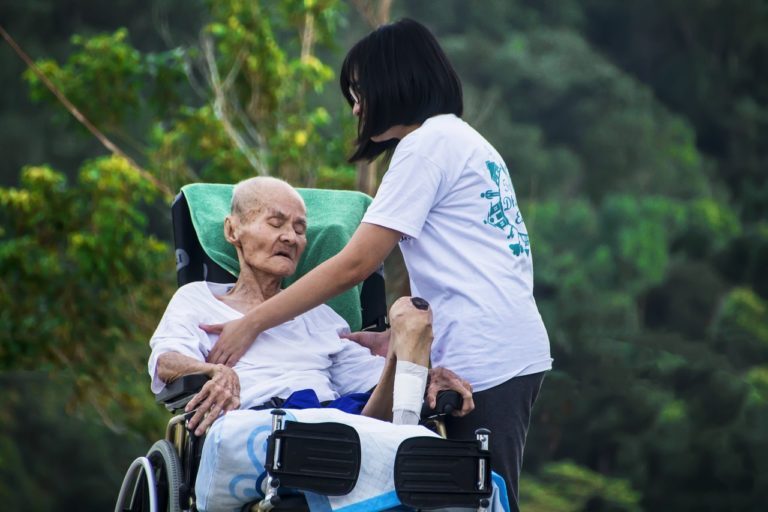Rehabilitation Centers: What They Are and Conditions They Address?
Rehabilitation centers are facilities dedicated to helping individuals recover from various forms of physical injuries, mental health issues, and substance abuse disorders.
The concept of rehabilitation has evolved significantly over time. In ancient civilizations, rudimentary forms of rehabilitation were often limited to spiritual healing and community support.
However, with advancements in medical science and psychology, rehabilitation practices became more structured and clinical. The 20th century marked a significant shift with the establishment of specialized facilities focused on treating addiction and mental health issues. Today, rehabilitation centers utilize evidence-based practices and multidisciplinary approaches to address the diverse needs of patients.
Rehabilitation centers play a crucial role in society by offering support and solutions for individuals struggling with various issues that can impede their quality of life.
Moreover, successful rehabilitation can lead to improved mental health, reduced crime rates, and stronger communities, ultimately contributing to a healthier, more productive society.
Types of Rehabilitation Centers
Rehabilitation centers come in various forms, each catering to specific needs and offering specialized care. Below are some common types of rehabilitation centers:
Physical Rehabilitation Centers
Physical rehabilitation centers focus on addressing physical injuries, disabilities, or conditions that affect mobility and functionality.
These centers provide professionals such as physical therapists, occupational therapists, and speech therapists to help patients regain strength, improve motor skills, and enhance overall physical well-being.
Patients recovering from a spinal cord injury, brain injury, surgeries, accidents, or chronic conditions like arthritis often benefit from the services provided at physical rehabilitation centers.
Substance Abuse Rehabilitation Centers
Substance abuse rehabilitation centers are dedicated to helping individuals overcome addiction to drugs or alcohol.
These centers offer a combination of medical care, counseling, and support groups to aid patients in their recovery journey.
Treatment programs may include detoxification, therapy sessions, and relapse prevention strategies, all aimed at achieving long-term sobriety and a healthier lifestyle.
Mental Health Rehabilitation Centers
Mental health rehabilitation centers specialize in treating individuals with mental health disorders such as depression, anxiety, bipolar disorder, and schizophrenia.
These centers provide comprehensive care, which may include psychiatric evaluations, medication management, individual and group therapy, and life skills training.
The goal is to help patients manage their symptoms, improve their quality of life, and reintegrate into society.
Vocational Rehabilitation Centers
Vocational rehabilitation centers focus on helping individuals with disabilities, injuries, or illnesses gain or regain employment. These centers offer services such as job training, career counseling, resume building, and workplace accommodations.
By addressing barriers to employment and providing necessary skills and resources, vocational rehabilitation centers empower individuals to achieve economic independence and personal fulfillment.
The Role of Rehabilitation Centers
Rehab centers play a crucial role in facilitating recovery for individuals struggling with addiction, chronic illness, or other debilitating conditions.
A rehab center provides a structured environment where patients can focus on their rehab programs to overcome their challenges with the help of medical professionals, counselors, and support staff.
Facilitating Recovery
Rehabilitation centers are dedicated to guiding patients through the recovery process, offering tailored treatment plans that address the unique needs of each individual.
Through a combination of medical care, counseling, and lifestyle changes, these centers strive to help patients regain their independence and improve their overall quality of life.
For example, people could find skilled nursing professionals that focus on alcohol rehab and help patients with physical medicine, specialized inpatient treatment, and more.
A rehabilitation facility exists to help make the patients’ life better, and that can range from inpatient to outpatient rehab, depending on what they need.
Providing Support Systems
A key component of successful rehabilitation is the establishment of a robust support system. Rehabilitation centers create a nurturing community where patients can connect with others facing similar struggles. This sense of camaraderie and mutual support can be instrumental in fostering a positive mindset and encouraging long-term recovery. Family involvement is often encouraged to strengthen the patient’s support network further.
Implementing Therapeutic Interventions
To address the multifaceted nature of recovery, rehabilitation centers implement a range of therapeutic interventions. These may include cognitive-behavioral therapy, physical therapy, occupational therapy, and alternative therapies such as art or music therapy. By offering a holistic approach to treatment, rehabilitation centers aim to heal not just the body, but also the mind and spirit.
Components of a Rehabilitation Center
A rehabilitation center is structured to provide comprehensive care and support for individuals seeking recovery from various conditions, such as addiction, physical injuries, or mental health issues. The core components of a rehabilitation center include:
Medical Staff and Professionals
The backbone of any rehabilitation center is its team of medical staff and professionals. This includes doctors, nurses, therapists, and counselors, all of whom bring specialized expertise to the table.
These professionals work collaboratively to design and implement personalized treatment plans tailored to each patient’s unique needs. Their collective goal is to guide individuals through the recovery process with compassion, skill, and evidence-based practices.
Treatment Programs and Therapies
Rehabilitation centers offer a range of treatment programs and therapies designed to address the multifaceted nature of recovery. These may include detoxification, cognitive-behavioral therapy, physical therapy, group counseling, and holistic approaches like meditation and yoga.
Each program is crafted to target specific aspects of healing, from managing withdrawal symptoms to fostering emotional resilience and reducing the risk of relapse.
Facility and Amenities
The environment within a rehabilitation center plays a crucial role in the recovery process. Facilities are typically equipped with modern amenities that support both treatment and comfort.
This can range from state-of-the-art medical equipment and therapy rooms to recreational areas and private accommodations. A well-designed facility not only enhances treatment effectiveness but also provides a safe and supportive space for patients to focus on their recovery journey.
Aftercare Services
Recovery doesn’t end when a patient leaves the rehabilitation center. Aftercare services are essential for maintaining long-term sobriety and well-being. These services may include ongoing counseling, support groups, follow-up medical appointments, and access to community resources.
Effective aftercare plans are personalized to help individuals navigate the challenges of re-integrating into daily life, providing them with the tools and support needed to sustain their recovery.
Treatment Modalities
Rehabilitation centers employ a variety of treatment modalities to cater to the diverse needs of individuals seeking recovery.
These modalities are tailored to address the specific physical, mental, and emotional aspects of addiction or illness. Key approaches include medical interventions, behavioral therapies, holistic methodologies, and pharmacological treatments.
Medical Interventions
Medical interventions in rehabilitation centers involve the use of evidence-based medical practices to manage and treat withdrawal symptoms, co-occurring disorders, and any physical health issues.
This often includes detoxification processes, medical monitoring, and the use of medications to stabilize the patient’s condition.
Behavioral Therapies
Behavioral therapies are designed to help individuals modify harmful behaviors associated with addiction and mental health disorders.
These therapies, such as Cognitive Behavioral Therapy (CBT) and Dialectical Behavior Therapy (DBT), aim to equip patients with coping strategies, improve emotional regulation, and foster healthier thought patterns and behaviors.
Holistic Approaches
Holistic treatments focus on healing the mind, body, and spirit as a unified whole. Methods such as yoga, meditation, art therapy, and acupuncture are often employed to promote overall well-being and reduce stress.
These approaches aim to restore balance and encourage self-awareness, ultimately supporting long-term recovery.
Pharmacological Treatments
Pharmacological treatments involve the use of medications to manage withdrawal symptoms, reduce cravings, and treat coexisting mental health disorders.
For example, medications like methadone, buprenorphine, and naltrexone are commonly used to treat opioid addiction. These treatments are monitored by healthcare professionals to ensure safety and effectiveness.
Navigating the World of Rehabilitation Centers
Rehabilitation centers play a crucial role in supporting individuals as they work towards healing and recovery from various physical, mental, and substance use conditions. These facilities are designed to provide comprehensive care, combining medical treatment, therapy, and support services tailored to the specific needs of each patient.
With a range of programs available, from inpatient and outpatient care to specialized services for different conditions, navigating the world of rehabilitation centers can initially seem overwhelming. However, understanding the different types of rehabilitation facilities and the services they offer empowers individuals and families to make informed decisions about their care.
Accessible and effective rehabilitation services are vital for individuals’ recovery journeys. These services not only aid in physical and mental healing but also contribute to overall well-being by providing the necessary tools and support systems.
Ensuring that rehabilitation centers are accessible means that more people can benefit from the specialized care needed to overcome their challenges. Effective rehabilitation services can transform lives, helping individuals regain independence, rebuild relationships, and reintegrate into society with renewed hope and resilience.





